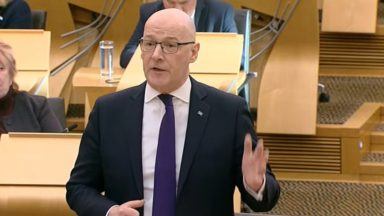New restorative justice services will “put victims at the heart of the justice system”, the Scottish Government has pledged.
It comes as two new hubs are launched in Scotland with the aim of rolling out further services across the country.
Restorative justice is a voluntary, facilitated, supported process of contact between someone who has been harmed and the person that caused that harm.
Both parties must consent voluntarily, can withdraw at any time and at no point is either party offered any kind of incentive to participate.
The person who has caused the harm has to acknowledge the harm and to take responsibility for restorative justice to proceed.
A total of £725,000 has been invested by the Scottish Government in the roll out of restorative justice services.
The new national hub within Community Justice Scotland will have a strategic oversight role.
And it will manage the delivery of an initial test project in the Edinburgh, Lothian and Borders area.
The test project will help to establish best working practices before services are developed in other regions.
Scotland’s justice secretary Keith Brown explained that restorative justice services are not a substitute or an alternative to the criminal justice system.
But, he indicated that the service could provide a means of putting victims first.
“Providing a national restorative justice service is consistent with our clear commitment to putting victims at the heart of the justice system,” said Brown.
“It is absolutely vital that victims are given a voice via person-centred services where their needs and values are respected and supported as part of their journey towards healing and recovery.
“It is crucial the service provided is safe, consistent, and of a high standard nationally and fundamentally it is vital to remember this is voluntary and must have the needs of the person who has been harmed central to the process.
“It is not a substitute or alternative to the criminal justice system but a means of putting victims first in a way that I am sure will be of benefit to a number of people for very many years to come.”
Gemma Fraser, head of Restorative Justice, Community Justice Scotland insisted that funding restorative justice is “essential”.
“It is important that people who experience harm caused by crime are empowered with the ability to voice the deeply personal impact of that, and given a choice in how they may wish to experience meaningful justice in Scotland,” she said.
“Funding restorative justice is essential to ensure safe and secure approaches to this, to prevent further harm, and enable recovery with supported access to services which address additional needs.”
Ashley Scotland, chief executive of Thriving Survivors, indicated that restorative justice can help to empower survivors of harm.
“Research shows there’s a real demand from survivors of sexual abuse for restorative justice to be available in Scotland in a safely managed way,” she said.
“It’s very much an individual decision, but it can empower survivors of harm to take back power, choice and control in their lives and can help their recovery.”
Follow STV News on WhatsApp
Scan the QR code on your mobile device for all the latest news from around the country





























